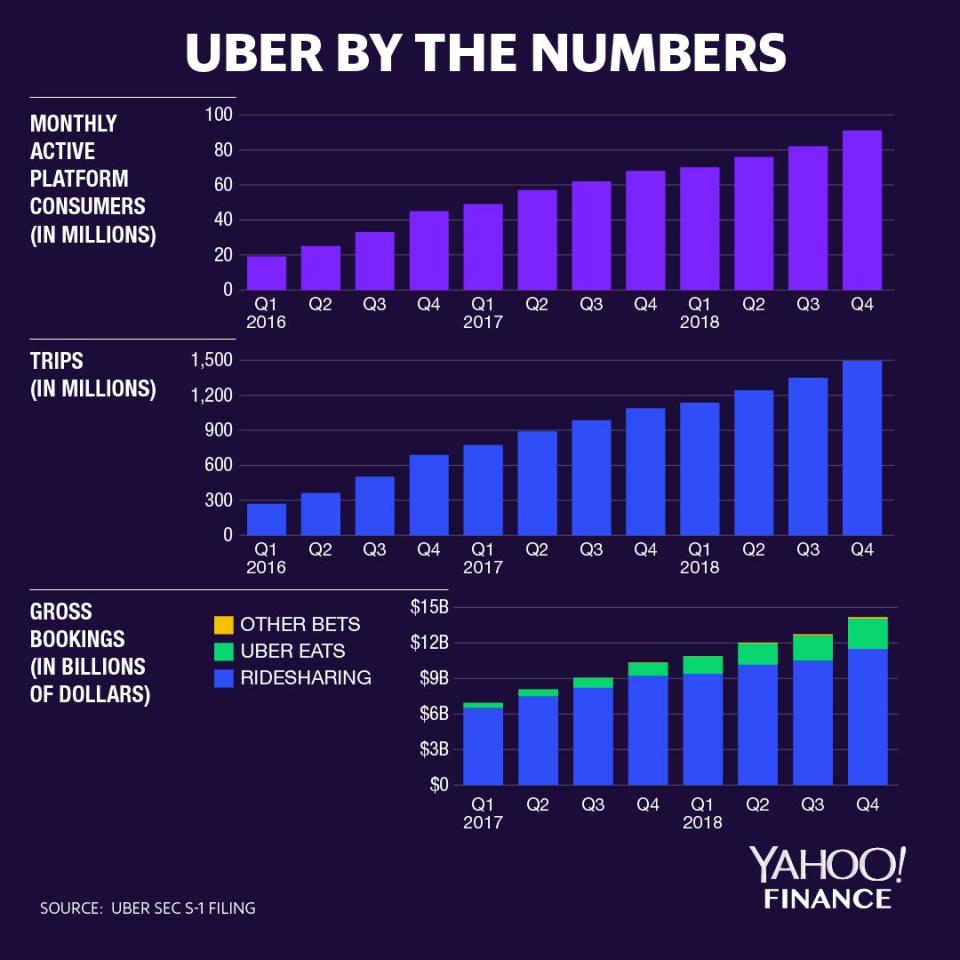Uber delivers on the promise every tech company has ever made
Technology in 2019 means lots of things to lots of people.
But the original promise of the internet age was the promise of time.
Time returned to you, the consumer, from analog processes that bogged us down in phone calls, snail mail, and paperwork.
Services like Uber (UBER) and Lyft (LYFT) accomplish one of the few things that internet revolution-era technology had not previously done for consumers — make travel faster.
In their simplest, most idealized form, Uber and Lyft sell riders time and offer drivers a more flexible way to make money with their time.

In their own way, each major consumer internet product of the last thirty years has returned time to consumers.
Personal computers and search engines made unnecessary the need to go to a library or use a reference book to look up basic information. The internet removed the lag between an event happening in the world and you finding out about it, for better and worse. Services like Facebook (FB), Skype, and YouTube cut down on previous waits to hear your favorite song, talk to your best friend, or see your first grandchild.
A common refrain in the corporate world is that things move faster now, and while this cliche is often a call for employees and customers to grow their businesses faster to please restless investors, the products available to us now have eliminated huge chunks of white-space-time from our lives and filled those gaps with information.
Travel, however, has been a stubborn holdout. The laws of physics limit the speed with which we can traverse physical spaces. Planes can only fly so quickly and humans can only run or walk so fast. The laws of states, counties, and municipalities further limit the speed we can travel on roads.

The wealthy, of course, have long had access to private transportation that returns to them time that the less well off spend going from one place to another. The internet also did not invent taxis or mass transit, both of which return time to their users. But ride-hailing services bring together all the themes that define the post-tech bubble, post-financial crisis world. They use labor market slack and ubiquitous internet connectivity to offer consumers affordable, on-demand, private transportation.
Uber, the first-to-market of the major ride-hailing companies, also fulfills one of the darker promises of our current digital moment — exploitation.
The company exploited the economic, regulatory, and cultural blindspots of the country, of cities, and of Silicon Valley.
When Uber went live for the first time in San Francisco in 2010, the unemployment rate in the U.S. was 9.4%. Today it is 3.6%. In July 2010, 14.5 million Americans were unemployed. As of April, that number stood at 5.8 million. The percentage of the workforce that was either out of work or working part-time instead of full-time was 16.4% in July 2010. As of April, only 7.3% of the workforce met this criteria. Slack labor markets created by inadequate responses to the financial crisis from the government were an essential part of Uber’s success.
Uber has also been forced to reckon with rampant sexual harassment issues within its employee ranks, removed its brash founder as CEO, broken laws on multiple continents, and faced rider user backlash over its response to President Trump’s 2017 refugee ban.
The company succeeded, in part, because of the male-centric Silicon Valley culture that rewarded brash founders like Travis Kalanick and enabled sexist workplace dynamics like those Susan Fowler detailed. Uber’s circumvention of legal constraints in various markets was ripped straight from the motto of another Valley success story: move fast and break things.
Uber is everything this tech moment has brought us all in one company. And the company’s public debut marks the end of a cycle defined by tech firms focused on finding the next big consumer product.
—
Myles Udland is a reporter and anchor at Yahoo Finance. Follow him on Twitter @MylesUdland
Follow Yahoo Finance on Twitter, Facebook, Instagram, Flipboard, SmartNews, LinkedIn, YouTube, and reddit.
